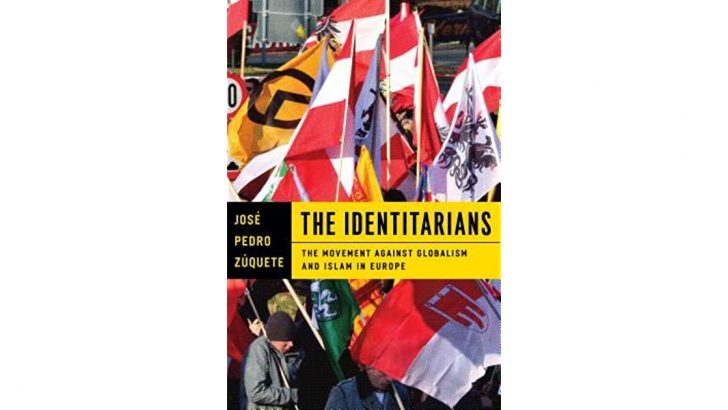The Identitarians: The Movement against Globalism and Islam in Europe
by José Pedro Zúquete (University of Notre Dame Press, £32.00/$39.00)
Frank Litton
We live in an age of adjectives. While going back over past controversies, it is hard not to note how often adjectives are deployed to deflect, or halt argument.
The commentariat are less concerned to shape, or inform, public opinion, than to police it and adjectives are their truncheons. Describe someone as ‘Catholic’, ‘right-wing’, ‘traditionalist’ ‘phobic’ to something, and they are banished, carrying their arguments into the outer darkness.
Is this a sign of strength? The powerful have no need to listen to the powerless. Or, a sign of weakness? Insults are hurled to cover up a lack of good reasons. Whatever is the case it is pity. It blinds us to problems to which we should attend.
So José Pedro Zúquete does us all a service in this detailed, scholarly examination of what one strand of the European right, the ‘Identitarians’, do and think. Groups of Identitarians can be found in most European states. While the number of activists is in the lower thousands a much larger number follow them on social media.
He focuses on France, Italy, Germany and Austria where their presence is strongest. French thinkers, critical of modernity, play an important part in shaping their world view.
They write of the damage done by the Judeo-Christian tradition with its monotheism that preaches the equality of all before the God that offers salvation to all. All that is particular, specific to time and place, rooted, is devalued in this universalism that was taken up and secularised by the Enlightenment to form the modern world.
They see the European Union exemplifying all that is wrong with this world. Nation-states lose their power, while that of the bureaucracy and its technocrats, increases.
Their hostility to the EU is not in the cause of nationalism. Their allegiance is to a Europe with its diversity of national cultures encompassed by one civilisation. Some see the unity in racial terms, others in terms of ethnicity and culture; all agree that the civilisation is under threat from within and without.
The cultural elites, they argue, disparage the cultural inheritance, while political elites bow down before the imperatives of a globalising market. Neither have the will or the resources to tackle the external threat: immigration. Immigrants ‘pour’ into Europe.
They have little incentive to integrate, their cultures being more vigorous than their host’s. Muslims pose a particular threat- Islam, ancient enemy of Christianity, is intent on world domination. These problems are exacerbated by the demographic crisis that sees the native populations of all European states fall.
Hysteria
While the hysteria and exaggeration of the Identitarians must be criticised, the problems are real. The EU is losing legitimacy as the vision of its founders, influenced as it was by Christian Democracy, fades.
While the number of immigrants, as a percentage of total populations remains tiny, the fact that they are concentrated in ‘ghettos’ is troublesome. There have been, and likely will be terrorist, attacks. European culture has lost vitality.
What is truly worrying is their proposals for solving the problems and renovating European civilisation.
Identity is important. Descartes should have written: “I am recognised, therefore I am.” Recognition is found easily enough: the family to which we belong, or the circle of friends and acquaintances among whom we move.
Things become more difficult when we move onto the bigger stage where we depend on culture to provide the resources out of which we can fashion our identities. Identitarians find their identities in an imagined Europe. It is a sad fact attested by history, and demonstrated by the Identitarians, that fear and hatred are potent sources of both unity and energy. They are adept at mobilising both.
When we move to the ‘left’ of the spectrum, we find the same preoccupation with identity. Of course, it takes a different form. Here we find individuals who identify as oppressed members of this race, that gender, this other group. They unite in hatred of the oppressors who deny them the autonomy that is their due. They do not want, emphatically, to ‘belong’. Both stances undermine democracy.
The basic political problem now is the achievement of a common culture that balances autonomy with belonging.
For the Christian this culture must defy the logic of the world. It must find its basis not in hatred, but in charity, in caritas, our disinterested love of others. One thing is sure, it cannot be constructed with adjectives.




